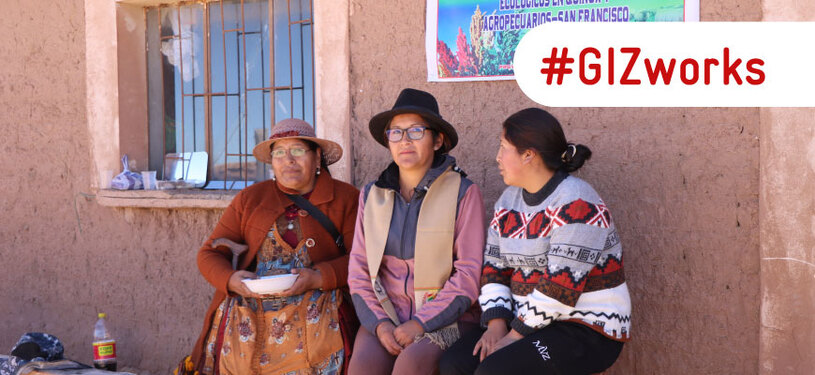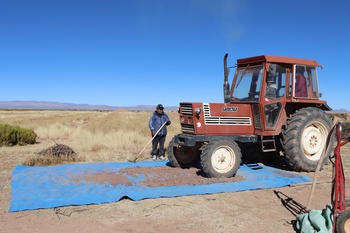
02.05.2024
Women entrepreneurs in Bolivia: Business knowledge leads to success
GIZ works! GIZ has provided over 1,000 farmers with machinery. They now produce foodstuff such as quinoa more efficiently – and some of their produce is exported to Germany.
There is currently a lively debate taking place about the purpose of development cooperation and how it is implemented. The series GIZworks! showcases how GIZ achieves results – in partner countries and in Germany’s interests.
Threshing ears of quinoa electrically instead of manually: producer Luisa Corani’s work has become much easier now that she has a threshing machine. ‘We just have to put the bundles of quinoa into the threshing machine and no longer have to crush them or lift them up.’ One member of Corani’s team can now process the quinoa, instead of three.
Training and new technology
It is not only in the production of quinoa that yields are increasing. Like Luisa Corani, the majority of the rural population in Bolivia is employed in the field of agriculture. The Deutsche Gesellschaft für Internationale Zusammenarbeit (GIZ) GmbH supports small businesses financially in purchasing agricultural machinery and provides them with technical advice. The Bolivian producers supported by GIZ have been able to increase their productivity by more than six times on average.
GIZ also trained representatives from 30 producing organisations on how to better manage their companies, set prices and market their products. Many had previously set their prices based solely on experience rather than demand, quality and costs. The business knowledge obtained helps them to operate effectively, increase profits and gain a foothold on the global market.

Around 90 per cent of the world’s quinoa is produced in Bolivia and Peru. This includes the quinoa that is sold in Germany. Increased productivity in Bolivia helps to meet demand and maintain sustainable cultivation methods.
GIZ works around the world to help small and medium-sized farms save time and improve the quality of their produce by using modern technology. Training programmes like the one in Bolivia are now to be offered in other countries in Africa, Asia and South America.